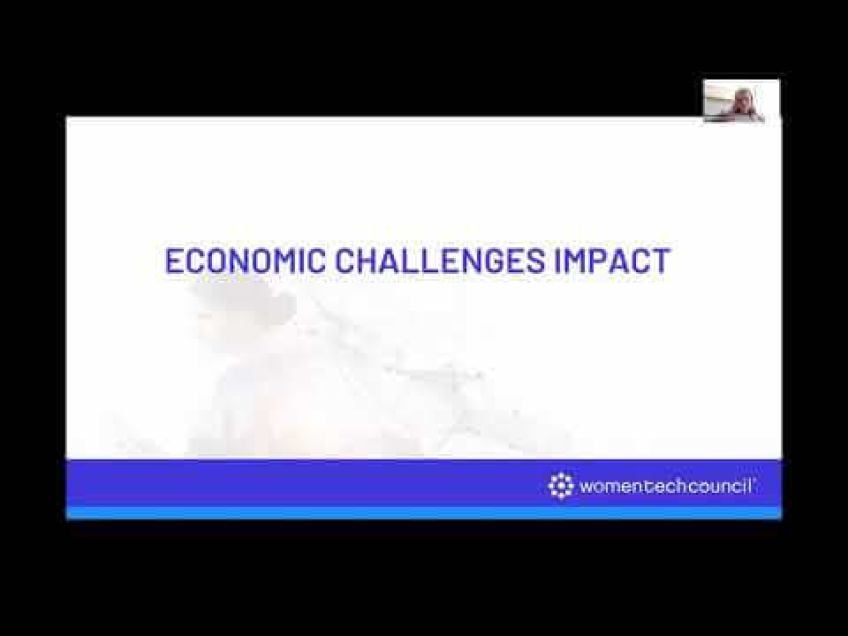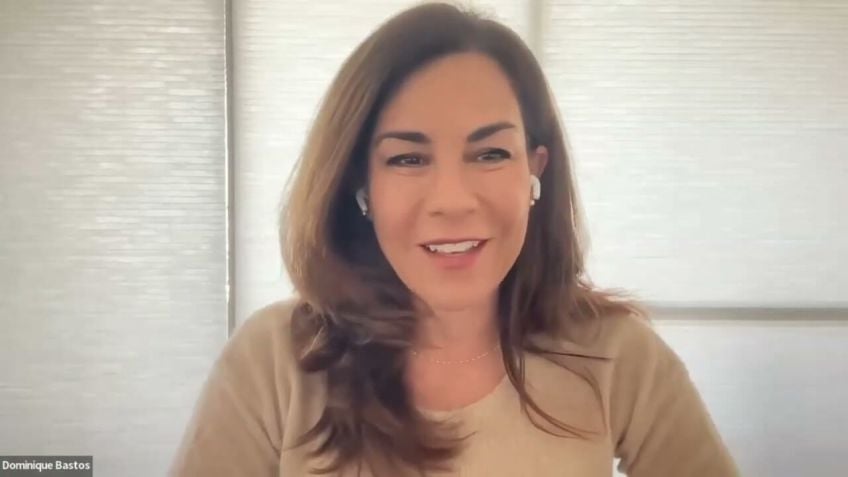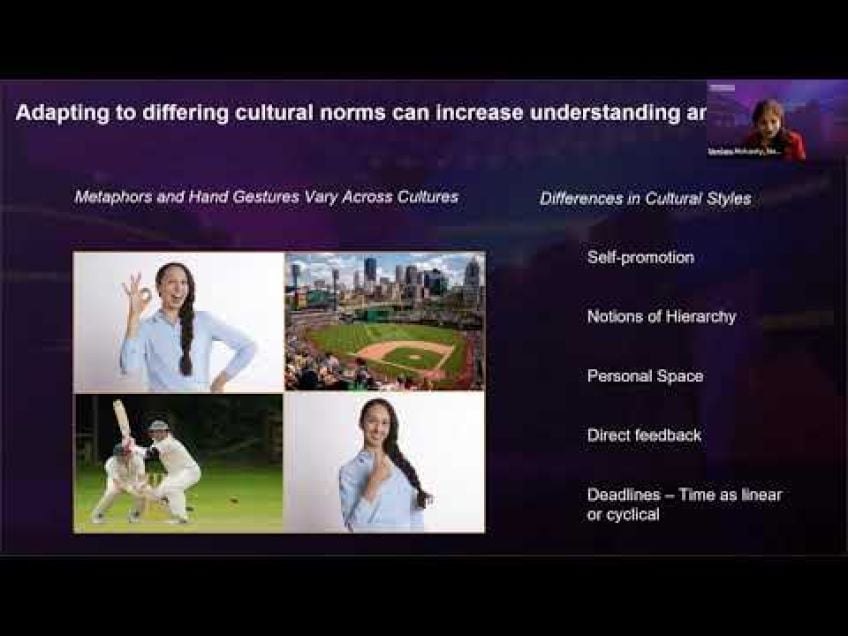From forced remote to hybrid connection: creating a company culture that works independent of the office
Reclaiming Remote Connections: A Guide to a Better Remote Work Experience
Today, we're going to journey through the world of remote work without the assistance of PowerPoint slides. Why? Because it's time to reclaim the human element of workplace presentations, focusing on building meaningful connections rather than narrating over a collection of slides. Throughout this article, I will share various insights, tips, and questions you can ponder to enhance your own remote work experience.
Who am I?
To start, let me introduce myself. I'm Valentina Turner, the Empress of Product at Claus, a well-established quality assurance platform based in Estonia. I work remotely from Spain, given our company's remote-first policy. Allow me to extend an early invitation to visit our website and explore the opportunities on offer, as we are currently hiring. Beyond my professional role, you can find me across various social media platforms as 'Valle de Oro.'
Let's Foster a Remote-First Hybrid Culture
Having worked at a company where all gatherings were primarily "in-person," despite the only screen in the room being me, I appreciate the anomalies of the remote working world. I believe that by reimagining meetings and pitching towards an online culture, we can maintain a level playing field for everyone.
Note: This shift doesn't imply an end to face-to-face interactions. As remote workers, we can still have social interactions and meet colleagues/friends without the need to go to the office. Consistent get-togethers with colleagues help foster a sense of camaraderie and teamwork, which is crucial in a hybrid or remote team.
Mitigating Conference Call Fatigue
At a time when we're constantly looking at screens, one might wonder: does every conversation need to be an hour-long video call? We can redefine this structure by starting meetings a few minutes past the hour, allowing folks to refresh their minds (and their cups of coffee).
Tip: Instead of treating every piece of communication as an urgent meeting, consider utilizing written communication tools like email, slack, or a project management tool for non-urgent matters.
Maintaining Social Connections in Remote Work
Working remotely doesn't have to mean feeling isolated. To make colleagues feel included, it's important to make everything as public and as persistent as possible. A good practice is planning regular one-on-ones with managers, peers, and direct reports—a clear calendar can be a helpful ally in remote work. Once we return to some semblance of normalcy and travel restrictions ease up, annual or bi-annual company retreats could be a viable way to forge tighter bonds among team members.
Leveraging and Integrating Team Diversity
Diversity in a remote work setting comes with its own set of challenges and opportunities. Recognizing your networking biases, setting up processes to overcome them, and creating a system that values inclusivity rather than conformity are essential elements of a successful remote work culture.
Custom Work Schedules
A flexible work schedule tailored to individual needs can make a massive difference in work productivity and overall satisfaction. The implementation of no-meeting days or setting a specific timeframe for meetings are practical ways to empower team members to manage their time better.
Remember, there’s no one-size-fits-all solution to working remotely. Consider running different experiments within your team to see what works best. It doesn't have to be perfect—there's value in making mistakes and learning from them. Build upon what works, discard what doesn't, and remain open to continual changes—the future of work is remote and relentlessly evolving!
Feel free to connect with me and share your thoughts on LinkedIn. Thanks for your time!
Video Transcription
So let's get started. I'm going to try something different today. So there will be no slides. Why? Because you remember like back in the day when you would have like presentations in the office or meet with people so that they could pitch something to you.There were slides and they were kind of in the background and then there was the person and you were actually um paying attention to the person and not primarily to the slides. So then in a remote world, suddenly the slides take over the entire screen and you have this tiny little person in the bottom corner and then no one really uh focuses on the person. And I want to reclaim this space that it's actually about us connecting about you hearing what I have to say, you having the time to actually writing and chat and me actually having the bandwidth to not be distracted by slides. But if we actually to focus on you and that said if you have questions do put them in chat, I have planned for 3 to 4 minutes at the end where I can actually go through the chat. But before I start with the content. Uh Let's look at who am I? So, I'm Valentina Turner Empress of product at Claus. Claus is a quality assurance platform. The company is based in Estonia. I am waiting, I'm working here from Spain because we are remote first and we are hiring.
So if you're awake at this time, you might want to check out the website clause app.com. But if you want to know more about me first slide, so there are slides, they're just different. I'm Valle de Oro everywhere. Also long story where that name came from. But if you search for Valle de Oro on Twitter, on Instagram, on linkedin, et cetera, you'll be able to connect with me and my goal for today for you is actually not to answer all of the how tos that I promised I would give you as a key takeaways, but rather that you learn to experiment, try something new, try something different because working remotely is different to working in an office, office.
And if it's different, it means we can't really um simply rely on what we've always done. So um in the talk presentation, I promised you four takeaways how a hybrid company culture needs to be remote first, how to mitigate conference call fatigue, how to structure non work conversations.
You don't forget that there are other people around you and how to leverage and integrate the diver diversity of your team. Now, we have about 17 minutes left and I'm not going to give you all the how to. So instead what I really want to encourage you to do is ask questions, learn new things. So here's what we're going to do. I'm going to spend 2 to 3 minutes on each of these topics to help you think about them yourself and look for solutions for the problems that you are facing in your company. Because if one thing is really true about remote work, there is no one size fits all solution or at least we haven't found one yet and I doubt that we are going to find one. So for example, let's start with the why is hybrid remote first? When I started at cloud everybody, the entire engineering team was in talent. So my first meeting was actually me on a screen and everybody else in the conference room. Uh It was, it was not productive. It was, it was like this weird mix between an inquisition atmosphere and very, very boring. So we realized as a team, OK, this was not going to work out. If I was supposed to work with these people, we had to somehow find a different way to work together.
Now, the normal solution, if I lived in Tallinn would have been, can you just come to the office? And of course, this was not an option because I was in Barcelona and like even there, there aren't even direct flight connections. So instead we said Well, what if we pretend everybody was remote and even the people in the office get really good headphones with really nice noise, canceling microphones and everybody uh logs in from their computer. And this was the perfect solution. So we leveled the playing field for everybody and instead of just defaulting to the oh meetings have to happen in person. We reimagined meetings and made them online for everyone way before the pandemic. So one thing that I want, we want to make really clear, this does not mean that people are not allowed to ever meet again. So I see this a lot currently in the media, et cetera. Everybody is talking about oh if we do remote work, then people will get really lonely because no, like remote work is not necessarily a pandemic enforced. You are not allowed to leave your flat and why not lock you into the basement. Um Option. Actually, people can go out and meet colleagues or meet other friends or just have social interactions without having to go to the office. This means that even if you are remote and especially if you're remote or hybrid one, once to twice.
Well, actually 2 to 3 times a year, you should bring everybody together. You should bring people into the same space to work together, have down time together, do fun stuff together, eat together, have drinks together. And in these 4 to 6 days, people will really bond with each other. They will get to know each other, they will understand who has, which kind of humor, whom can I ask about? Which kind of things work related and non work related? And that way you can make the office an optional perk even for those who live like close to the option. So the question that I want you to take home is take home. Is this one? How do you know someone is remote? And why does it matter? Like if you figure out why does it matter, then you can start mitigating this. Why you think it matters? One example would be make the office a perk in a sense that you don't do mandatory office days, but you do mandatories, not in the office days. Like everybody is allowed to come to the office when they want, but three times a week they have to work somewhere else so that they can experiment what it means like to work somewhere else, which can be at home at a coffee shop in your local library. I love local libraries like somewhere anywhere. They don't need to be sitting in a bedroom. That's why remote first can actually change a lot of things and people suddenly figure out where they are most productive. So next topic, conference call fatigue.
So the fact that I'm not doing slides today is because I know that all of you have been looking at too many screens too often. And so I'm trying to mix it up a little bit. So why does every communication needs to be face to face and one be one hour long? Like somebody can explain why Google um has this Google calendar? Has this power to dictate that I have to talk with everybody an entire hour. And the meeting always has to start on the top of the hour. Like who said, who thought this was a good idea. So for example, I usually tend to uh start meetings at five minutes past the hour so that people can actually renew their tea or their coffee in between meetings. And I actually love that this talk um started at 10 minutes past the hour or 40 minutes past the hour for those who are calling in from India. So if you're asking for a meeting every time that you need an answer, this solves the problem for you because you send out that meeting invite and you're done, you know, you can only just show up for the meeting and get your questions answered, but you are basically taking away valuable uh brain space from that other person.
So if there is no urgency, wouldn't it be better if you can just write down, send an email, send a slack message or post it in confluence or wherever you have your um your discussions that happen in writing and tell by when you need the answer, it's much quicker to ask a question today and ask for a written answer by the end of the day, then ask for uh a meeting that happens next week.
And this is actually also one of the things that you can use to your advantage instead of making everything a default meeting. How about you make everything a non default meeting in general? I divide meetings into uh different types of meeting. Information gathering should not be a meeting, status updates should not be a meeting. Brainstorming could be a meeting but make sure to give everybody homework before, especially the introverts so that they know what's coming up and they can prepare decision making could be a meeting.
Social hangouts probably should be a meeting. But if you really do these in person hangouts from time to time like twice, three times a year, you won't need that many for them and don't just win it. Wing it. So this is very important right now in this meeting presentation, I'm basically competing against Twitter, against linkedin, against Instagram, against your boss pinging you on slack again, like against everyone. And there's no way that I can be like, hey, can you please pay attention?
And the same happens in your remote meetings, like people after 20 minutes space off. So how can you actually reduce the number of meetings? And the questions that I want to leave you with on this topic is if you can't do a video call until next quarter, how would you operate? And this is a relevant questions. Like, imagine if you were in Europe, um You're the main person you work with, in my case, I'm head of product. Imagine if my CTO moved to Australia, like how would we operate if we don't have any overlapping time anymore? Uh So these kind of, or imagine that they can't have video calls because I don't know, there's a restriction on video calls in the country they live in and it's super expensive or something like how would you operate in that case? Um You could even give everybody credit, like you're allowed to have 10 conference calls per week, allocate them. Well, so next topic, uh how to not forget people. There is the out of mind, out of sight, out of mind and this is very true. And in the office it doesn't happen that much because you run into people and then you remember that you know him and then or her and then you remember that you have talked to them before and then you remember what you talked about and you kind of connect doesn't happen online, at least doesn't happen actively, like you have to do something around it.
And here's like little anecdote. Uh until two years ago, I worked at Automatic the makers of wordpress and there everything is very much written and sometimes I have ex colleagues who are still there reaching out to talk because they just read something that I created there and saw my name and remembered me.
And this is why for everything that is present in a remote work, you need to strive for let it be as public as possible. And as persistent as possible. Public means that it's accessible for more people than just the one person or the 20 people who were in your meeting. Persistent means that if you leave, it's still there. If you leave today, it's still there tomorrow or if you leave the company, it's still there in a year or two. Uh So the question is, of course, how can you do this? Because a video call, even if it's recorded isn't about the least persistent thing in the world. Like maybe the people who were with you on the call, remember you but no one else will because honestly, who's going to watch all these one hour recordings? So the question is how can you be visible in your company? And how can you remember people? And these are basically two different things that have, you have to work on and it needs to be active. You can do your uh your own input in terms of being present, writing down your things, sending emails, being present on slack, but without doing it all the time because I mean, you also have work to do.
So the question is when and how can I plan people into my week when? And how can I plan people into my week? I hope you already have weekly, one on ones with your managers and with your people that report to you. If you don't, it's high time that you organize those. You can also have one and once, once a month or once a quarter with other people in your companies. Like there is no rule that you only can have one on one with the people you report to. So I have monthly one on one with some of the women in our company that I really like to, uh, level up, then I have quarterly one on ones with almost everybody who even somehow works together with me because I need these recurring meetings in my calendar to actually remind myself that these are people that I work with on a day to day basis.
And if I can't run it to them in the hallway, well, we're going to do a 20 minute check in somewhere along the way. This is easier if you had a company, um, retreat at some point. So, you know them in person already. So as soon as travel is a thing again, and we're going to go back to travel. Like, trust me, we're going to go back there. Um, see if you and your company can actually get people together so that you can create this, um, bonding time. There we go. When and how can I plan people into my week? And I say plan because it's totally fine to put recurring meetings into your calendar or to put in your, to do list, uh, a recurring task of check in with this person or check in with that other person. And finally diversity. So the biggest problem even with remote people, because technically you can hire anywhere anyone. Right. But the truth is we very much rely on our networks to find people that we want to hire. And our networks tend to be the people that come from the same place that we come from, that went to the same university or that did the same courses that we did. So the networks tend to be a little bit homogeneous. So in order to like and there isn't much to it that you can actually do about this at this very moment.
But it's something that you need to be aware of and linkedin is not really helpful because if you look for product designer, which is one of the roads we have currently open and I search for it on linkedin, I only get examples in my direct surrounding even though I couldn't care less whether they are in Bulgaria, Romania, Portugal or London for that matter.
So uh be aware of how your network biases the people that you can reach out to and see if you can actively mitigate that. And then what does it actually mean to be diverse? Because in the end, in order to be inclusive and diverse, you need to manage with your company, how you can accommodate different people instead of expecting people to accommodate to the standard. Because the standard in our work culture is actually, it was actually created for usually men who have somebody at home full time who takes care of the kids, which is not my case, I do take care of the kids, but I'm the only one who takes care of them. So I'm a single mom of two preschoolers, which means that in summer, uh, when school closes down, I adjust my work schedule and because we are a remote first and hybrid company and we are very attuned to what is it that people need to do their best work. Uh It's totally fine for me to adjust my summer schedule. We have no meeting days in which days my work schedule can be all over the place. Um, and we have certain hours in the day where meetings happen so that you can spread out your load. So, for example, I usually work from 630 until roughly nine o'clock, which is when my kids wake up, we have breakfast together, then I work from 10 to 1 more or less. And then we have lunch together.
If I don't have, uh, meetings in the afternoon, we do a really, really long afternoon. We go to the public swimming pool, we pool, we go to the beach, we just enjoy the afternoon together and then I do the last hours that I still have left once they are in bed, they go to bed at German Times, even though we're in Spain. So like by 830 I'm usually free. Um And otherwise if I do have meetings at four o'clock, they get their uh screen time and that way I can do the meetings while they are um on the tablet. So this is only there because we actually asked ourselves, what do we want people to achieve? Instead of what times do we need them to be sitting at the desk? So here the question is where do you, where do your needs differ from those of others? And where do those needs of other people may differ from your own? And how can you accommodate these? And how can you actually help people to figure out what they need? Because there's like do does somebody need a specific schedule? And I wouldn't even call it? Does somebody need a specific schedule? But can you create a framework where by default meetings are only within a very narrow uh time frame during the day so that people can be very flexible with the rest of their day?
Are there any specific tools that are needed for people? Do they need a specific type of interaction? Some people need more one on one to feel comfortable than others or how much guidance do people need? Some people just want to go off on their own? Like give me a goal? And I'll figure it out for you and some want to have like checkpoints across the way to make sure that they are on the right path. There are a million personality tests that can start their conversation and I'm not going to recommend any specific ones, but the importance is to start talking about what do people need to actually be productive? Especially when they can't just copy paste, what the person next to them is doing because the person next to them might just be a cello, which is not very helpful. So there we go. Thank you very much. I have two minutes left. So I'm just going to remind you of how to find me. And then I'm going to have a quick look at the chat. I did it from India, invites you to connect and Anya asks about one and one remote Slack has a Donut app which you can use for random matching with other colleagues. Yes, absolutely donut is amazing.
So the Donut app is really, really helpful and geek bot is another one that you can use for um for stand ups. So with geek bot, you can actually send out automated um questions every morning and we actually do the questions. What did you do yesterday? What did you non work related in the past week that really you would like to share and what are your plans for today? And we are like adding this social questions question in the middle of it to make sure that people share a little bit more than just, oh, I worked on this task and today I'm going to work on this other task. But rather well, yesterday I had my first birthday party at the beach and it was amazing because it feels like some kind of social normalcy is coming back into my life. So, experiment, what I want you to do is try something new, try something different experiment, experiment, experiment.
If it doesn't work, that's fine. Try something new. If it does work, share it with me on linkedin. Thank you very much and I hope you're having an inspiring uh conference for the rest of the week basically. Thank you. Bye.





